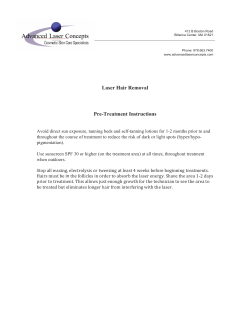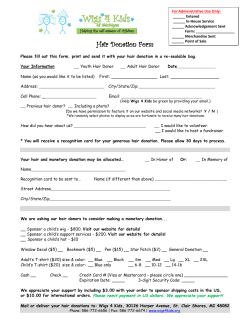
Psychemedics Record: No False Positives We participate in blind
Psychemedics Record: No False Positives We participate in blind-sample and proficiency testing to measure our ability to correctly identify drugs and avoid false positives. We have participated in these blind sample and proficiency programs for over fifteen years and have not had a false positive result. In blind sample testing, a third party sends Psychemedics hair samples containing particular drugs, and the goal for us is to test and correctly identify the drugs in each of the samples. We have been tested by the National Institute of Standards and Technology, the International Society of Hair Testing, and Walsh & Associates, and have achieved 100% accuracy. Psychemedics also has an ongoing blind sample program, in which forensic toxicologists send samples that are blind to us, and we test them and report the results through our Quality Assurance department. In proficiency testing, a third party sends hair samples to Psychemedics, and the goal is to correctly identify and quantify the drugs in the hair. We participate in proficiency testing programs conducted by ARVECON GmbH, the National Laboratory Certification Program, and the International Society of Hair Testing. We have passed all of these tests, and have not had a false positive result. We also avoid false positives because of the following aspects of our testing process: 1) We use mass spectrometry to identify drugs by their unique molecular fingerprints, so substances cannot be “mistaken” for drugs. By contrast, urinalysis testing has, for example, in the past mistaken poppy seed ingestion for the presence of opiate drugs. 2) We use a distinct barcode for each sample, which we scan at every step to make sure we are testing the correct sample at all times. 3) If the donor challenges the result by claiming it’s a false positive, we can collect a new sample for repeat analysis. This is a unique advantage of hair testing, and allows us to provide the appropriate and accurate rate of the positivity of drug classes.
© Copyright 2025









